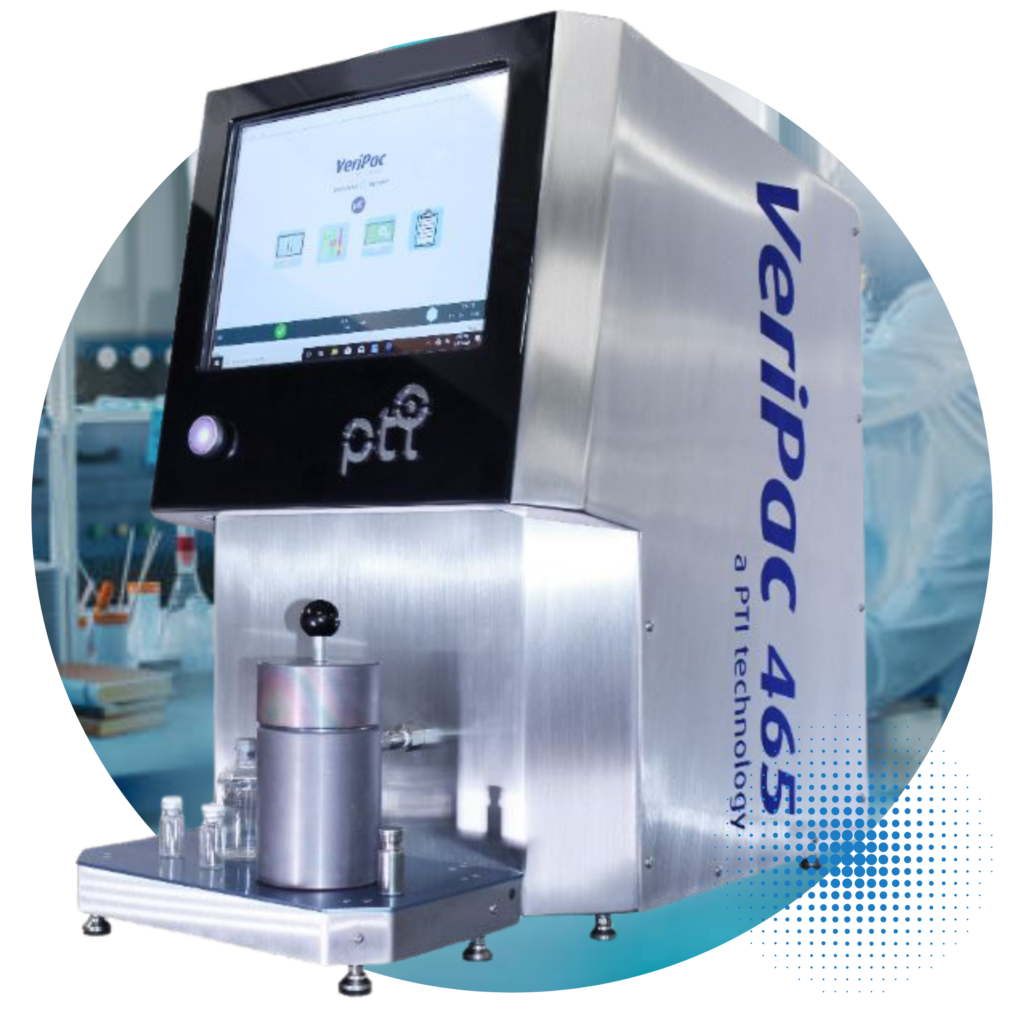Vacuum Decay Experts
Discover Unmatched Assurance in Packaging Integrity with Gateway Analytical's Vacuum Decay Testing
Our leading-class vacuum decay test is a non-destructive, quantitative leak test method that detects leakage in non-porous, rigid, or flexible packages. The test can identify leakage in the package headspace gas region and below the product-fill level once the test recipes and parameters are optimized, provided that the product properties allow it.
The test sample is placed in a closely fitting evacuation test chamber that is pneumatically connected to the leak test system equipped with an external vacuum source to perform the vacuum decay method. A test chamber needs to be custom-fabricated for each product-package and container-closure system. For container-closure systems with movable or flexible components, an advanced test chamber design is required to limit the movement or expansion of the parts.
VeriPac Vacuum Decay Technology
VeriPac leak testers connect to a test chamber that is specially designed to contain the package to be tested. The package is placed inside the test chamber to which vacuum is applied. The single or dual vacuum transducer technology is used to monitor the test chamber for both the level of vacuum as well as the change in vacuum over a predetermined test time.
The changes in absolute and differential vacuum indicate the presence of leaks and defects within the package. The sensitivity of a test is a function of the package design, the package test fixture and critical test parameters of time and pressure. Test systems can be designed for manual or fully automated operation. This inspection method is suitable for laboratory offline testing and production applications for QA/QC statistical process control. The test cycle takes only a few seconds, is non-invasive and non-destructive to both product and package.
Vacuum decay, leveraging essential physical principles, serves as a method for assessing container integrity. Over years, this technique has been refined and enhanced through technological advancements.
Recognized for its efficacy and sensitivity among vacuum-based leak detection methods, vacuum decay offers dependable and precise quantitative outcomes, complete with clear pass/fail indicators.
The VeriPac inspection approach, rooted in vacuum decay technology, enables non-invasive testing of various packaging, including rigid, semi-rigid, and flexible types crafted from both non-porous and porous materials. PTI’s VeriPac instruments, employing this method, are adept at identifying leakages down to the micron level.

CCIT Study: Vacuum Decay
Gateway Analytical offers vacuum decay CCIT to many biotechnology customers who store drug formulations and materials in flexible cryobags and cryotubes.
When the test is initiated, the test chamber and the test system dead space are evacuated for a predetermined time. The vacuum level selected for the test is predetermined based on the test sample type, size, and content. The vacuum source is then isolated from the test system. After a short time has elapsed to allow for system equilibration, the rise in dead space pressure (i.e., vacuum decay) is monitored for a predetermined length of time using absolute and differential pressure transducers. A pressure increase exceeding a predetermined pass/fail limit established using negative controls shows that the container leaks.

Early-Phase Development
Container Closure
Integrity Testing
Particulate
Analysis
Medical Device
Analysis
Extractables
& Leachables

